While I've taught a number of classes about how one would begin culinary research at the New York Public Library, I understand that people can't always make it to midtown in the middle of the day, nor does everyone live in New York. For those reasons and more, I've put together a brief tutorial on how to begin culinary research at a library and I will attempt to make this as universally applicable to other libraries as possible.
Cookery is the Word
Perhaps the most important trick when looking up cookbooks in a library catalog is to use the term "cookery" as a keyword (this is not the case for Amazon, Abe, Barnes & Noble or any cookbook store). Cookery is the official Library of Congress subject heading for cookbooks, and while it seems antiquated (the LOC has proposed changing the heading to either cooking or cookbooks), cookery is still the most effective way to find relevant sources.
For example, if I want to search for vegetarian cookbooks at the 42nd Street Schwarzman Library, I could type "vegetarian cookbooks" as a keyword in the Library's catalog and 25 results would come up in the catalog. But if I type "vegetarian cookery", 467 titles come up in the results. That's a big difference. You may prefer a smaller pool of titles to work with, but I would argue that you're better off modifying the 467 results (by language, publication date, words in title, etc.) until you get the kind of results you're looking for.
Another tip when searching catalogs: always use a keyword search when starting research unless you're looking for a particular title or author.
More of the same
Let's say you've found a title that looks exactly like what you need for your research (or pleasure). But how do you find more books with that same subject? The easiest and most reliable way is to go directly to the catalog record of the book you've already found. Just find the subject heading, and then click on that heading link to lead you to more titles with that same subject.For example, say you're interested in insect cookbooks. You find a book in the catalog called Entertaining with Insects : or, The Original Guide to Insect Cookery. Great! But one or two more titles would be perfect. If you click on the link above, you'll see that the subject heading for Entertaining with Insects is "Cookery (Insects)". If you click on that link, it takes you to a listing of three titles — the Entertaining title, and two others: Creepy, Crawly Cuisine and La Cuisine des Insects. One is in French, but the other one looks good. Closer inspection of Creepy, Crawly Cuisine shows that it has yet another subject heading attributed to it: "Edible Insects". If you click on that subject heading link, you'll get six more titles, and so on, and so on.
Resources (other than free websites) for great information
Not everything is online. And not everything that is online is free. That's where libraries can help, (especially public libraries if you're not affiliated with a college or university). The following are subscription databases available at NYPL that I find extremely useful when conducting culinary research. Unfortunately, most of these resources are not available from home. You have to physically come to the library to access them, but once you're here you can download or email or print the articles that look good. Also, not every public library has subscriptions to these resources, but ask your librarian -- he/she may be able to give you access to a college or university for a day.
Historical Newspapers
NYPL subscribes to the historical New York Times, Chicago Tribune, New York Tribune, New York Amsterdam News, LA Times, San Francisco Chronicle, Hartford Courant, Harper's Weekly, and more -- all online. These historical newspapers are excellent sources for a wide variety of information, from radio broadcast schedules and refrigerator advertisements to restaurant reviews and recipe columns.
Oxford English Dictionary
The Oxford English Dictionary (OED) is another invaluable source, as it provides the etymology and approximate usage of words into the English language. For example, "tikka masala" entered the OED in 1975, just two years after Madhur Jaffrey's An Invitation to Indian Cooking was published and the same year that John Canaday reviewed the restaurant Tandoor in the New York Times and gave it two stars -- highlighting the chicken tikka masala ($4.50).
ProQuest Research Library
ProQuest Research Library is an aggregated database, meaning that it includes the full-text of a number of different periodical titles in a variety of different subjects -- both popular and scholarly. Here you can find an archive of the full-text of Gastronomica (with a six month embargo), O: Oprah Magazine, Nation's Restaurant News, Nutrition Action Newsletter, and more.
Business Source Premier
For those more interested in the "industry" side of food culture, Business Source Premier (from the vendor EBSCO) is filled with titles from business periodicals, from the Chilled Food Industry Profile to Food and Drinks Forecast.
New York Public Library Digital Gallery
Last, but far from least, is the Library's own Digital Gallery of images from materials in our collections. Here one can find maps, menus, cigarette cards (see below), photographs of farms, schools, restaurants, and so much more.
What are your favorite research sources? Let me know!

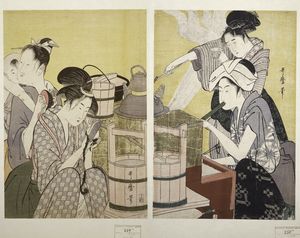
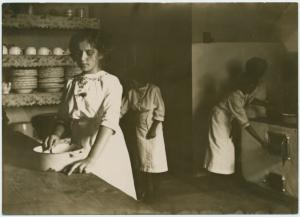
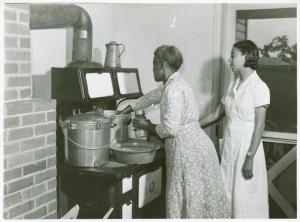
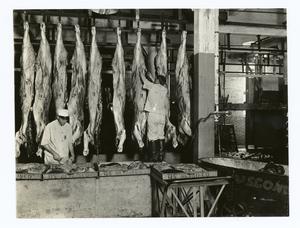
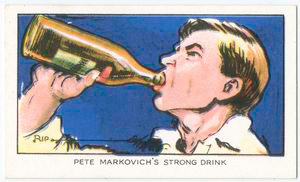
Thank you! This is VERY useful information.
ReplyDeleteReposted here: http://twitter.com/AtYourLibrary
ReplyDeleteThanks for this. I would love to take your class, when is the next one?
ReplyDeleteAlso, can you use any of the DBs you mention from your home computer by entering your NYPL library card number?
Hi Kathryn,
ReplyDeleteOf the databases mentioned above, only Business Source Premier works from home with a NYPL card. The Digital Gallery is available to anyone with Internet access and I'm crossing my fingers to have OED available from home soon.
Thanks!
great post. thanks!
ReplyDeleteGreat post on research resources. Thanks!
ReplyDeleteAs of June 2, 2010, the Library of Congress changed the topical subject heading Cookery to Cooking, and established a genre heading of Cookbooks. More information can be found here: http://www.loc.gov/catdir/cpso/h1475.html
ReplyDeleteGreat list of resources, thanks!